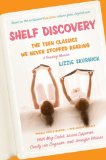 Shelf Discovery
Shelf Discovery
The Teen Classics We Never Stopped Reading
A Reading Memoir
by Lizzie Skurnick
With Meg Cabot, Laura Lippman, Cecily von Ziegesar, and Jennifer Weiner
Avon (HarperCollins), 2009. 424 pages.
This was the perfect book to read slowly while I was taking an online class given by the Association for Library Service to Children called “The Newbery Medal: Past, Present and Future.” Because this book was, also, about the books of childhood. Okay, maybe not all the childhood reading this book covered was necessarily “distinguished,” but it was truly memorable. And a whole lot of fun to stroll down memory lane with Lizzie Skurnick and some guest writers, talking about the books we loved as teens. As a matter of fact, a lot of Newbery Medal winners and Honor Books were included, so it was truly pertinent to the class.
I was won over immediately by Laura Lippman’s Foreword to this book, because I have always been a rereader. My father is not a rereader. My sister is not a rereader. They are proud not to be. My sister does not buy books, because she is not going to read it again, so why spend the money? My father is embarrassed when he forgets he’s read a book before and accidentally starts on it again. I, however, have always taken great delight in rereading old friends, and love C. S. Lewis’s essay, “On Rereading.” I knew I would enjoy this book when I read Laura Lippman’s words:
“Some people are baffled by re-reading in general, the re-reading of children’s books in particular. What’s the point? Why waste time revisiting the books of childhood when there’s so much else to read? With these essays, Lizzie Skurnick has answered those questions far more eloquently than I ever could. It’s as if a kindly psychiatrist suddenly appeared with a sheaf of missing brain scans…. By the time we realize the profound influences of our youthful reading lists, it’s too late to undo them. Yes, if I knew then what I know now, I would have read more seriously and critically during those crucial years that my brain was a big, porous sponge. But I didn’t and my hunch is that you, dear reader, didn’t either. So stretch out on Dr. Lizzie’s couch… Contemplate the fact that Ramona Quimby may be a fictional creation on a par with Emma Bovary. We should not be ashamed of re-reading our favorite books, only of re-reading them thoughtlessly.”
But I especially liked what Lizzie Skurnick said about how the books themselves brought her right back to her own experience of reading them:
“When I first started doing reviews of classic young adult literature for Jezebel’s Fine Lines column, I was amused and surprised by the odd, visceral details that returned to me with every work: Pa bringing the girls real white sugar wrapped in brown paper in Little House in the Big Woods, Sally J. Freeman having a man-o’-war wrapped around her foot (who even knew what a man-o’-war was?), Claudia choosing macaroni at the Automat in From the Mixed-Up Files of Mrs. Basil E. Frankweiler. These strong, charged images that have never left me — they’re often even stronger than memories I have of my own life. I simply see the cover, and they come back — like fragments of a dream I can’t quite remember, Proust’s madeleine, but even stranger, since I’ve never even tasted one.
“Some of the lives I read about were very similar to mine (I could see a lot of my own camp life in There’s a Bat in Bunk Five, minus the cute boyfriend, natch), and some couldn’t be more different (despite my best efforts, I have yet to achieve psychic synergy with a dolphin). But it wasn’t about finding myself — or not finding myself — in the circumstances of a girl’s life, as much as I might be fascinated by it. It was about seeing myself — and my friends and enemies — in the actual girl.”
Ah, here is writing a kindred soul, who, like me, was pulled from childhood into the lives of girls in books.
And now the fun comes in to hear her telling about those lives. Some are the same books I loved and cherished myself. Some are quite different. Judging by the copyright dates, Lizzie Skurnick is several years younger than me. She also got hold of some raunchier material than came my way, for whatever reason. (You mean to tell me that’s what’s in Flowers in the Attic? Lauri Ann, you read that? Okay, well.)
But most of it is simple good clean fun. I laughed at some of the themes she found. For example, all the books that describe living off the land. She says:
“I am convinced more than ever that once the great global climactic catastrophe has destroyed the earth, when the stragglers dig themselves out from their damp bomb-shelter hovels and go hard-core low-tech, readers of young adult fiction will make up the core of the new society . . . because we are the only ones who will find living off the land fun.”
Some other chapters’ themes are tear-jerkers, coming of age, danger, runaways, romance, paranormal, and old-fashioned girls, though Lizzie Skurnick has much classier ways of wording them. She really covers a wide variety of titles. Just a smattering of some favorites of mine that she covers are: A Wrinkle in Time, A Ring of Endless Light, Jacob Have I Loved, Bridge to Terabithia, The Witch of Blackbird Pond, Understood Betsy, In Summer Light, The Moon By Night, An Old-Fashioned Girl, The Secret Garden, and A Little Princess.
She covers 73 titles, so, obviously, there are many more. I had not read most of them, but somehow half the fun is the fondness and the spirit with which she tells about them. And I will definitely have to look some of these up.
I recommend doing like I did and reading a chapter or so a day. I am going to start following her blog, Old Hag.
Buy from Amazon.com
Find this review on Sonderbooks at: www.sonderbooks.com/Nonfiction/shelf_discovery.html
Disclosure: I am an Amazon Affiliate, and will earn a small percentage if you order a book on Amazon after clicking through from my site.

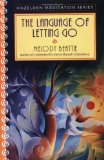
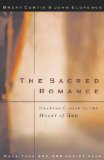
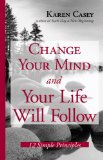
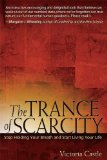
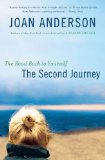


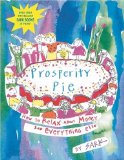 Prosperity Pie
Prosperity Pie Shelf Discovery
Shelf Discovery